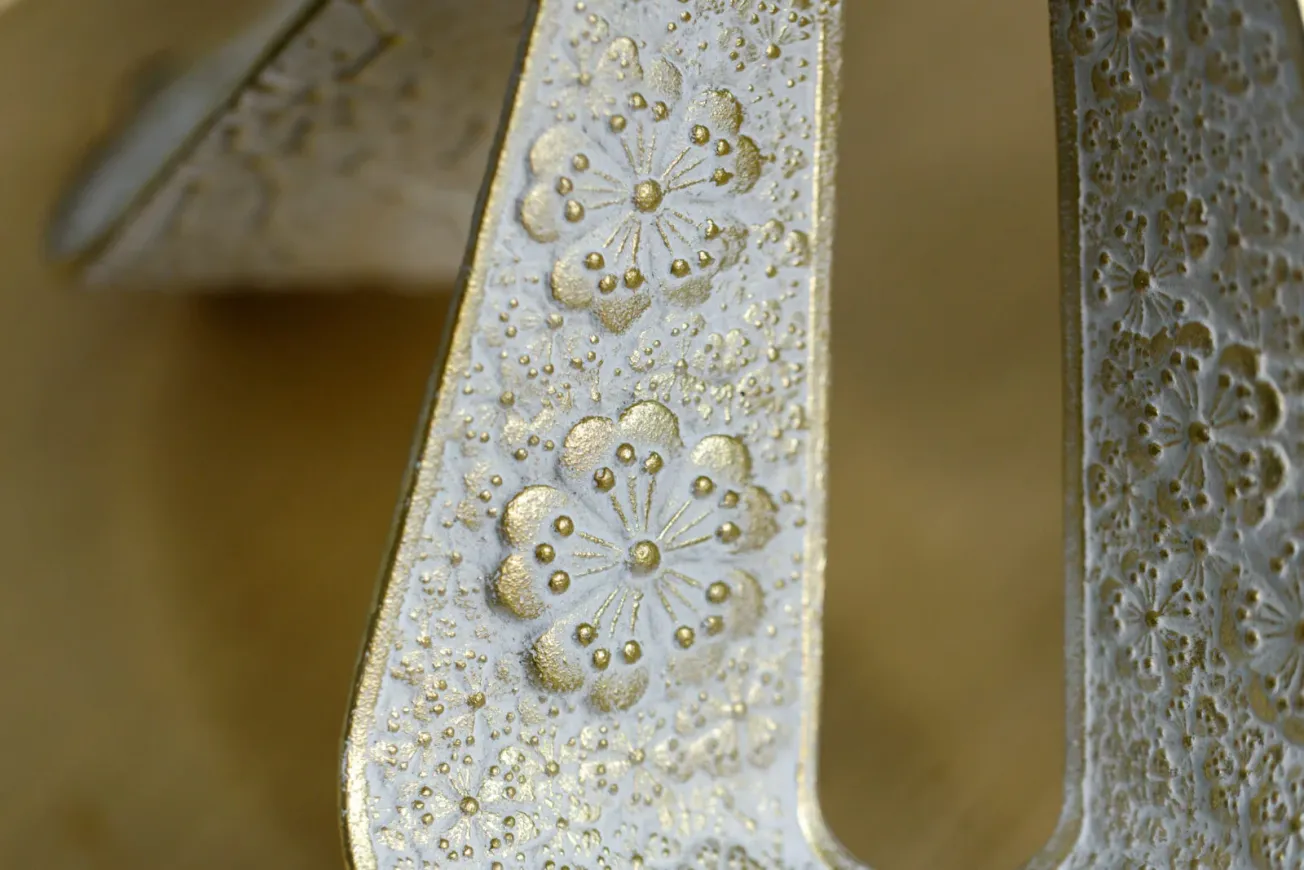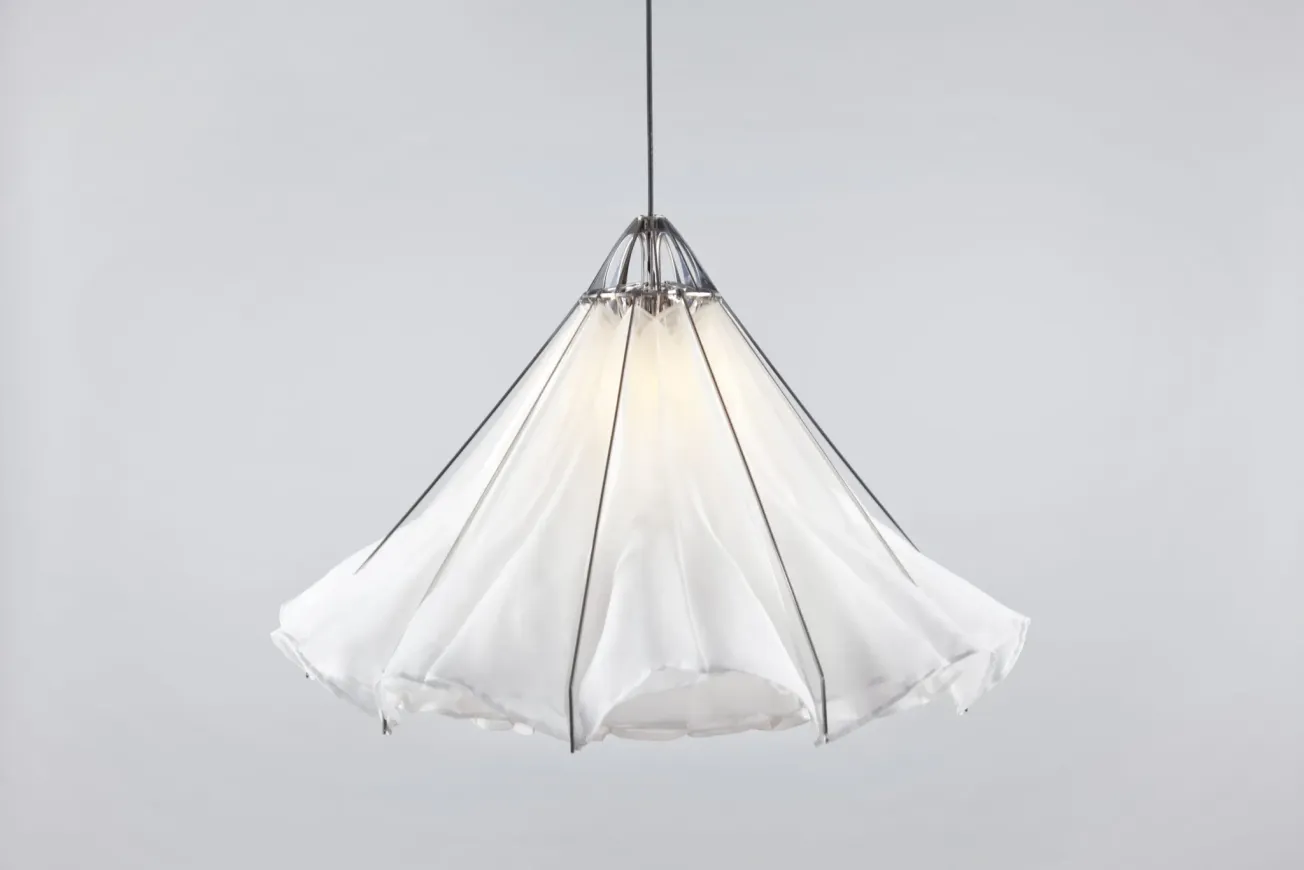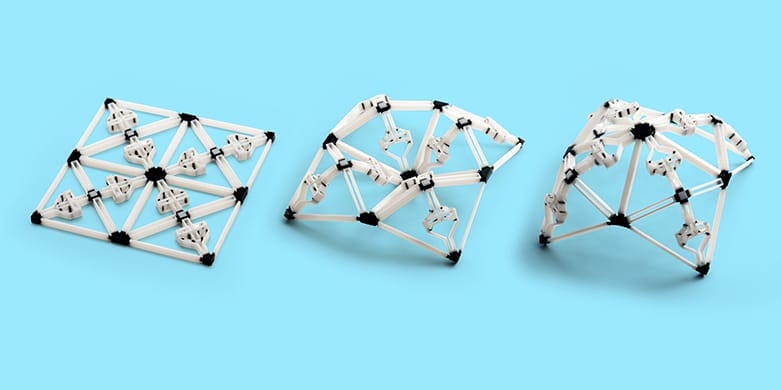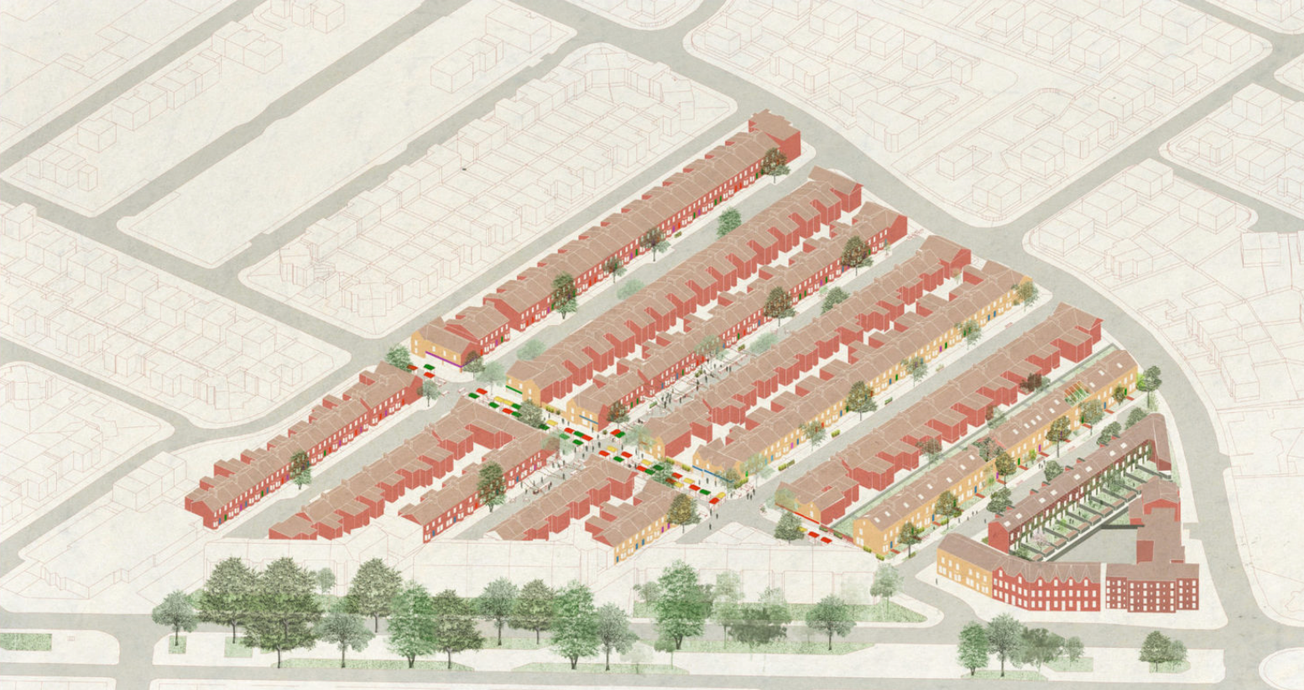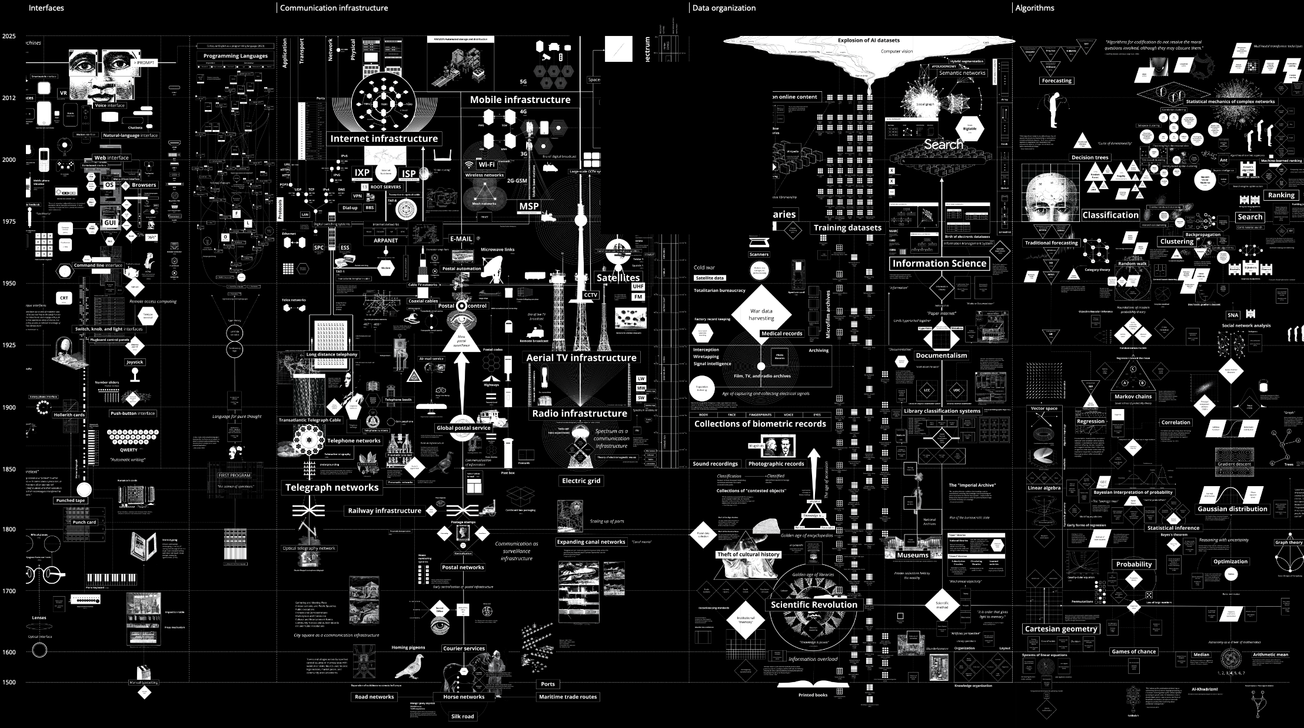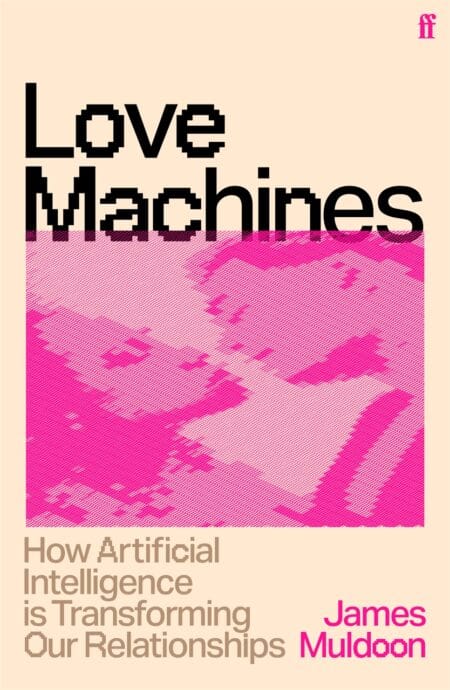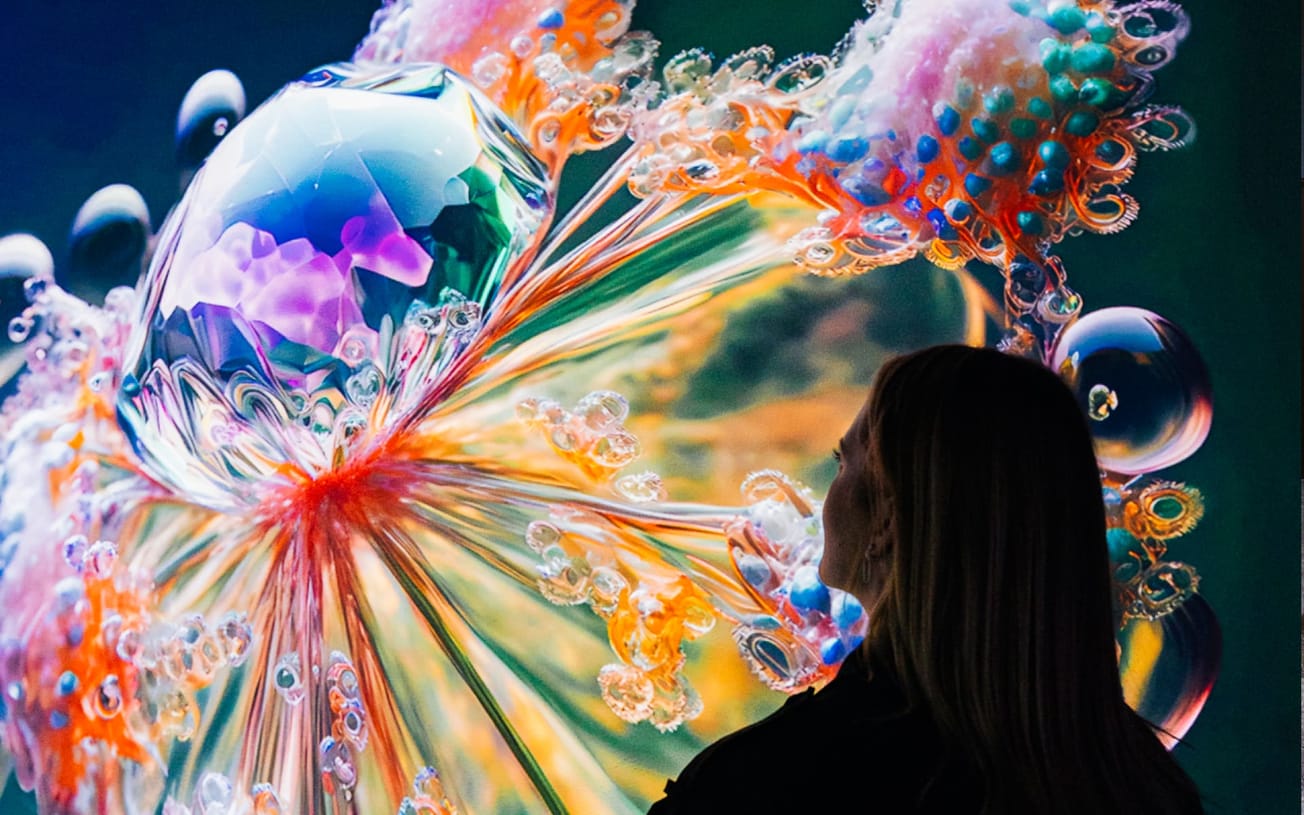A growing number of internationally recognized studios, collectives, and initiatives are working at the intersection of artisanal heritage and speculative design, showing how traditional techniques can be reinterpreted for contemporary and future contexts. Projects such as Studio SWINE’s Metropolis I, TRAME’s generative craft collaborations, and the Craft × Tech Tohoku Project exemplify how heritage practices can be embedded within design narratives that are both culturally grounded and forward-looking.
Studio SWINE × Sendai Tansu: Metropolis I (2024)
London–Tokyo design collective Studio SWINE (Super Wide Interdisciplinary New Explorers), founded in 2011 by architect Azusa Murakami and artist Alexander Groves, is known for blending narrative, site-responsive research, and craft into immersive works. In 2024, under the Craft × Tech Tohoku Project, they collaborated with the Sendai Tansu cooperative in Miyagi Prefecture to produce Metropolis I, a geometrically reductive reinterpretation of the traditional Sendai Tansu cabinet.
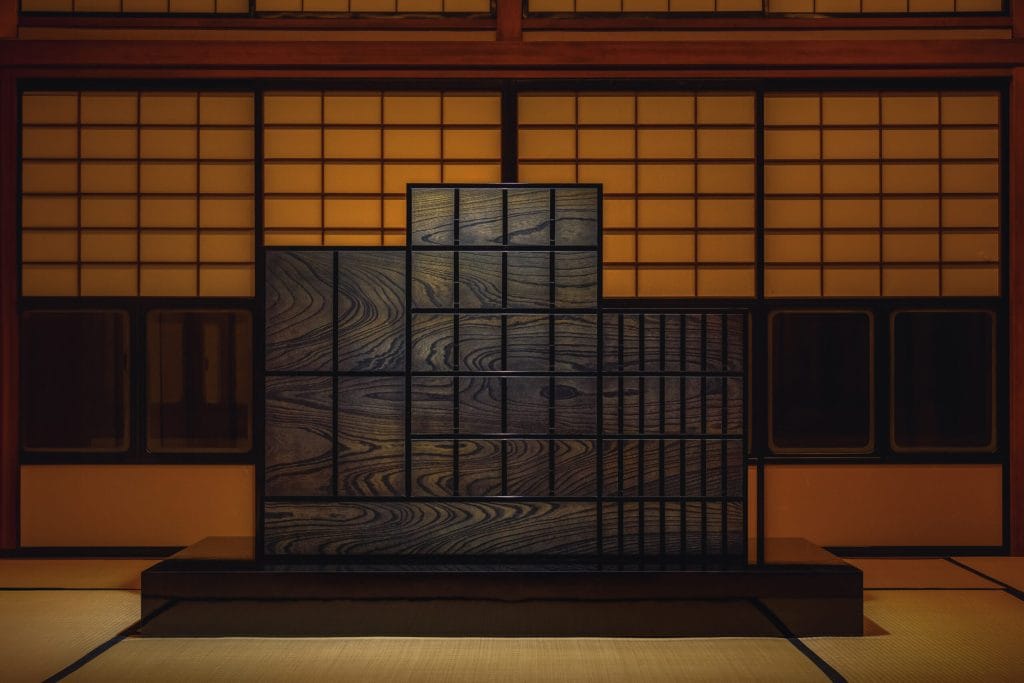
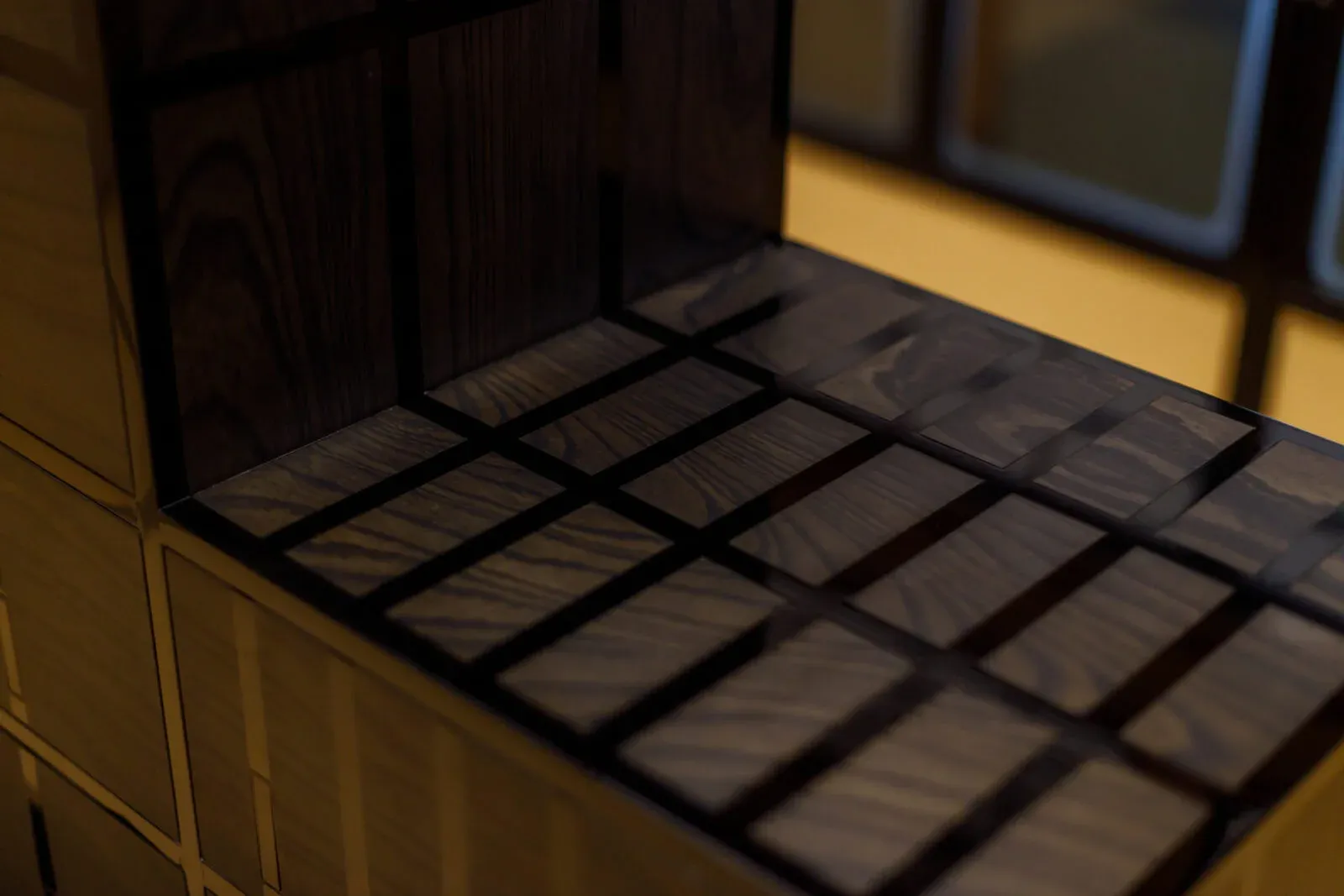
Sendai Tansu originated in the Edo period as storage chests for samurai and merchants, crafted from lacquered keyaki (zelkova) wood and iron fittings. Studio SWINE’s version reframes these materials into a cubic form guided by grid motifs that nod to Metabolism architecture and ukiyo e aesthetics. Murakami has described the resulting piece as a “time travel device,” one that uses centuries-old craft languages to reference modernist futures while reconnecting with local heritage. The work debuted at Kudan House in Tokyo in May, then won Best Curio Presentation at Design Miami/Basel, and later was included in the Victoria & Albert Museum’s London Design Festival exhibition in September 2024.
TRAME: Generative Design Meets Global Artisan Traditions (2024–25)
TRAME, founded in Paris in 2019 by Ismail Tazi, has become a recognized studio and platform bridging generative digital design and artisan craft. The studio invites generative artists—such as IX Shells, Linda Dounia, and Fingacode—to Morocco for research trips; local weavers then translate the resulting algorithmic patterns in hand-crafted tapestries.
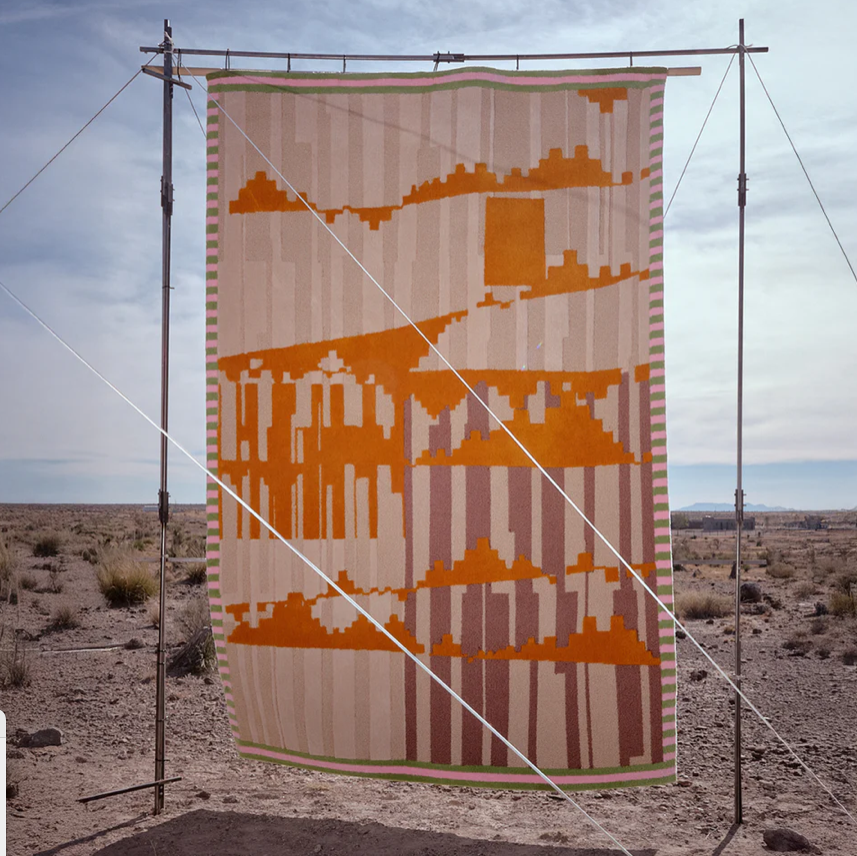
At Art Blocks Marfa Weekend in late 2024, TRAME premiered Desert Threads: Weaving Tradition and Technology, a Berber-inspired tapestry collection that blends controlled randomness with handcrafted materiality. Coverage in Wallpaper and PIN–UP Magazine highlighted this model of digital logic shaping artisan labor—an approach that synthesizes heritage craft and speculative design.
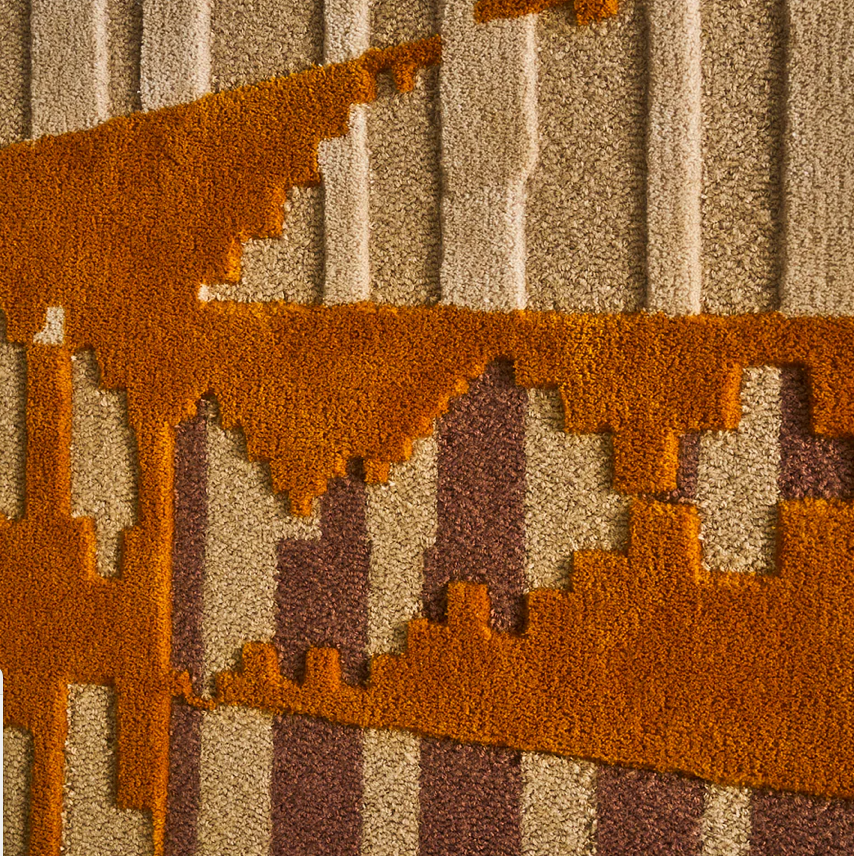
TRAME’s technique shows that digital abstraction (code, algorithms) need not supplant craft but can amplify its reach. The work was positioned as a key moment in validating generative design as a channel for cultural revival—not just decoration, but intentional form making grounded in traditional skill.
Craft × Tech Tohoku Project: Curated Landscape of Designers & Crafts
The Craft × Tech Tohoku Project 2024—led by Hideki Yoshimoto and curated by Maria Cristina Didero—featured six international creators collaborating with master craftsmen from the six Tōhoku prefectures in eastern Japan. Each designer responded to their local craft tradition: Sabine Marcelis reinterpreted Kawatsura Shikki lacquer with her “Yōkan” light-sensitive minimalism; Michael Young advanced Nambu Tekki ironware through modular, 3D-patterned structures in his Blossom Links. Studio SWINE, Yoichi Ochiai, Ini Archibong, and Yoshimoto himself contributed distinct reinterpretations of regional lacquering, textiles, ceramics, or ironwork. The works debuted at Kudan House in Tokyo, won Best Curio Presentation at Design Miami/Basel 2024, and were later shown at the Victoria & Albert Museum during London Design Festival.
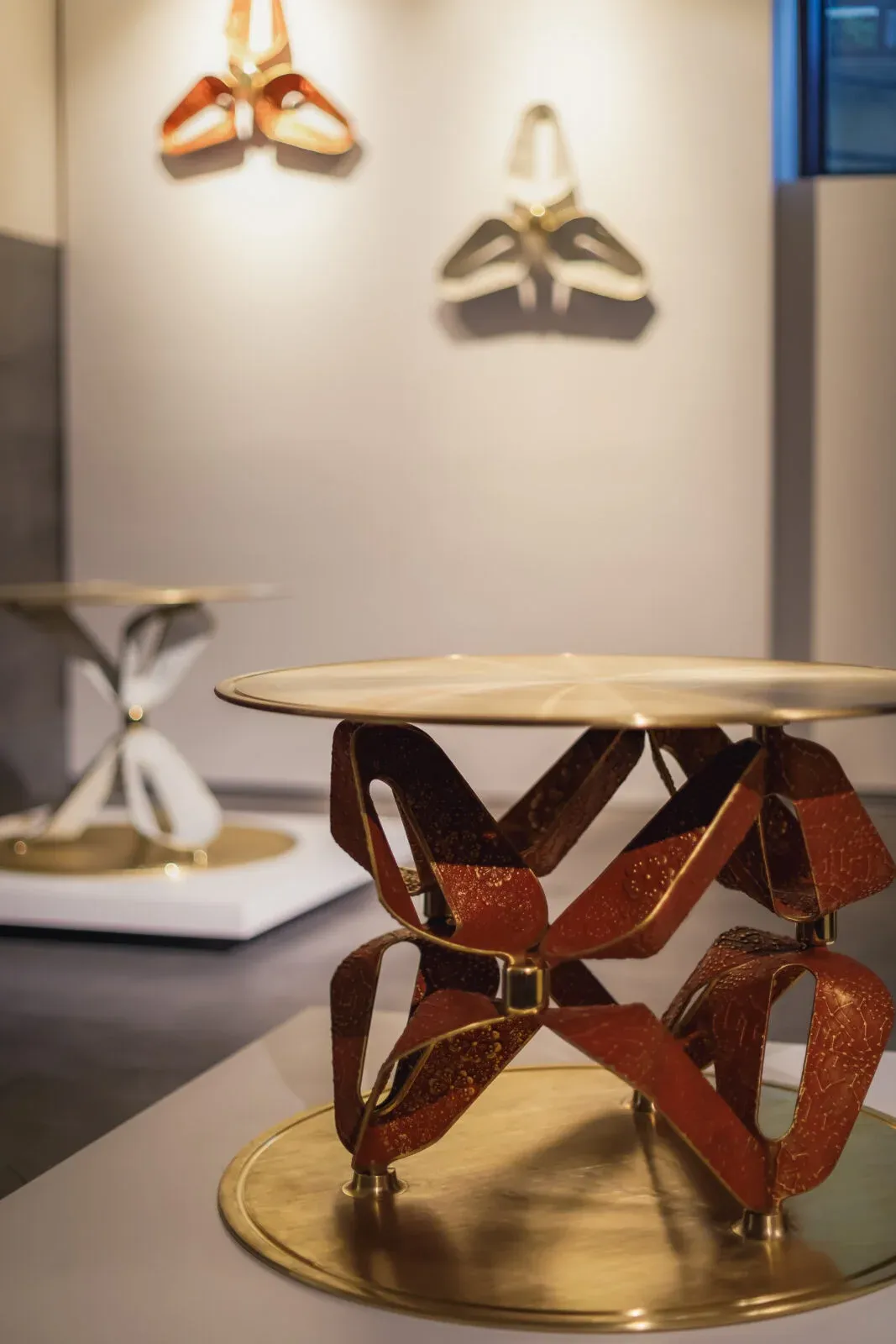
Common Threads and Distinctions
Though distinct in geography and approach, these projects share clear commonalities. Each revives endangered local crafts through collaboration with artisan cooperatives and ateliers—from Sendai Tansu cabinet-makers in Japan to Berber weavers in Morocco and silk weavers in Tōhoku. They embed heritage techniques within speculative design frameworks oriented toward future narratives—whether through modular geometry, algorithmic code, or immersive structures referencing architecture and sensory concepts. Drawing on context-specific research—ranging from Studio SWINE’s fieldwork in Miyagi, TRAME’s design-research trips in Fez, to Craft × Tech’s commissioning of regional masters—the designers reinterpret rather than fetishize tradition, translating it through conceptual and technological lenses. Their impact is marked by international visibility at venues such as Tokyo exhibitions, Design Miami/Basel, the Victoria & Albert Museum’s London Design Festival, and Art Blocks Marfa, reflecting both critical acclaim and cultural visibility.
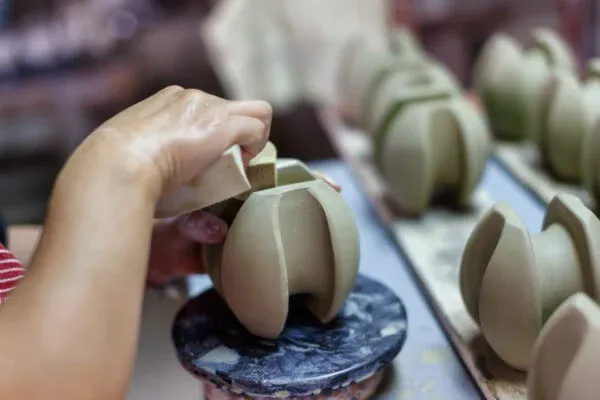
From Preservation to Provocation: The New Role of Craft
For designers focusing on systemic and material futures, these projects offer a model of craft as method—not merely ornament. They underscore how collective driven workflows (studio + artisan collaboration) can yield objects that are both materially grounded and conceptually expansive.
In Metropolis I, Sendai artisans’ hands shape lacquer and iron under constraints derived from Metabolism and modern minimalism, pushing their skills into new formal territory. Meanwhile, TRAME’s generative pipeline demonstrates that code need not erase craft: instead, it can situate it within emergent form grammars grounded in digital logic. And Craft × Tech’s broader curation shows that multiple craft traditions—from woodwork to textiles—can be platformed together under speculative design curatorial logic.
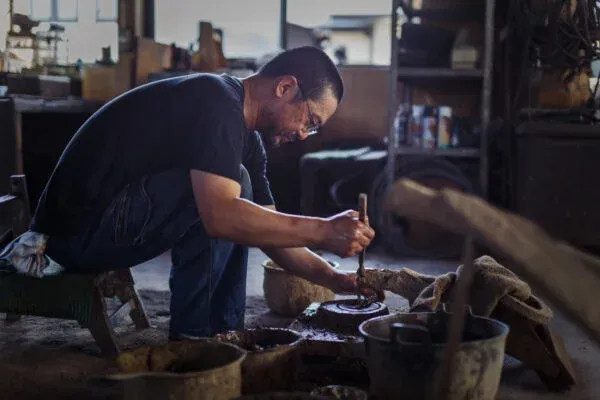
This signals a shift: craft revival is no longer just about preservation. It’s about generative opportunity. For those designing futures—be they industrial, material, or experiential—these projects map a toolkit for bridging tradition and innovation at scale.
These world-class, collective-driven studios demonstrate the potential for reviving artisan techniques within design futures. Studio SWINE with Metropolis I, TRAME’s generative textile works, and Craft × Tech’s curated exhibitions all reflect a design sensibility that honors artisanal heritage while reimagining it as speculative medium. For design professionals, curators, and creatives committed to craft informed futures, these are essential case studies: examples of how material legacies can inform code, form, and narrative in the making of tomorrow.

